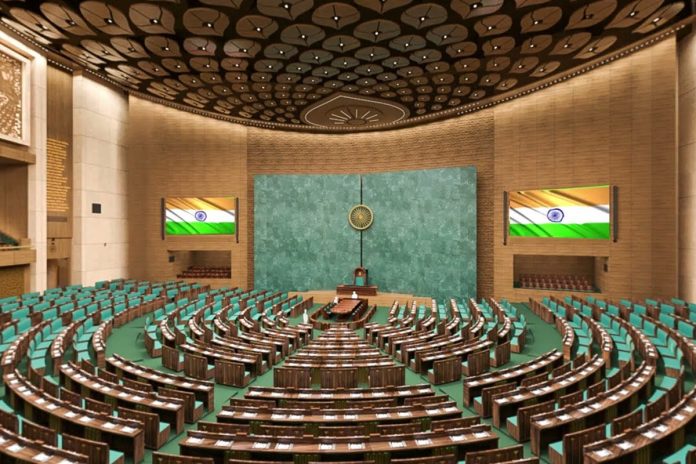New Delhi: The BJP-led NDA government is set to introduce two bills in Lok Sabha this week: the Constitution (One Hundred and Twenty-Ninth Amendment) Bill, 2024, and the Union Territories Law (Amendment) Bill, 2024. These bills mark the first step toward implementing the BJP’s key poll promise of simultaneous Lok Sabha and state assembly elections.
Key Provisions of the Bills
- Constitution (129th Amendment) Bill, 2024
- Proposes simultaneous elections by amending Articles 83, 172, and 327 and adding Article 82A.
- Ensures Lok Sabha and assembly elections align, with all terms ending concurrently after a full five-year cycle.
- Specifies that elections after early dissolutions will cover only the “unexpired term” of the original tenure.
- Requires a two-thirds majority in Parliament but no state ratification under Article 368(2).
- Cabinet approval was granted last Thursday.
- Union Territories Law (Amendment) Bill, 2024
- Seeks changes in laws governing UTs, Delhi, and Jammu & Kashmir to synchronize their elections with the Lok Sabha and state assemblies.
- Requires only a simple majority in Parliament.
Timeline for Implementation
- Even if passed in February 2024, the law will only take effect in 2034.
- The new framework ties terms of legislative bodies to the next Lok Sabha’s “appointed date,” which begins with the 19th Lok Sabha’s first session in 2029. The earliest synchronized elections would then occur in 2034.
Addressing Mid-Term Dissolutions
- For Lok Sabha or assemblies dissolved prematurely, elections will cover only the remaining term.
- “Mid-term elections” will be held in such cases, while full-term elections will occur after a five-year cycle.
Second Step: Local Body Elections
- A further amendment will add Article 324A to synchronize elections for municipalities and Panchayats within 100 days of Lok Sabha and assembly polls. This will require ratification by half the states.
Rationale for ‘One Nation, One Election’
- Cost Efficiency: Simultaneous elections could reduce the expense to ₹4,500 crore.
- Minimized Disruption: The frequent imposition of the Model Code of Conduct disrupts development and governance.
- Historical Context: Lok Sabha and assembly polls were synchronized from 1952 to 1967 before disruptions caused by early dissolutions.

